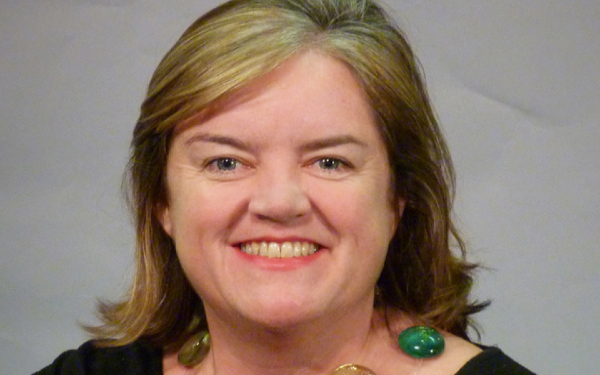
The government must “urgently interrogate” the fall in the number of child sexual abuse (CSA) and exploitation (CSE) cases being recorded by councils, Baroness (Louise) Casey has told ministers.
Casey’s national audit of group-based CSE and CSA, published yesterday, highlighted a “mismatch” between the rising rates of abuse recorded by police forces and the falling number of cases picked up by councils through child in need assessments, child protection plans and safeguarding reviews.
Urging the Department for Education (DfE) to investigate this issue was among 12 recommendations made by Casey, a former senior civil servant, alongside a national criminal investigation into CSE and a national statutory inquiry to oversee local investigations designed to hold agencies to account.
Victims ‘left without justice, accountability or answers’
Casey said the several reviews into group-based CSEs over the past decade, including those led by Alexis Jay into abuse in Rotherham and as part of her Independent Inquiry into Child Sexual Abuse, had unearthed the same issues.
These included “system failures in information sharing, the need for more training, understanding of risk factors of victims, and the importance of collecting better data and information on perpetrators, including on ethnicity”.
She said while there had been “seminal moments of scandal and public outrage which [led] to bursts of government focus and activity”, there had been “no sustained improvement, leaving victims and the public with insufficient justice, action, accountability or answers”.
Audit findings ‘damning’
Home secretary Yvette Cooper described Casey’s findings as “damning” and said the government would be taking action on all of her recommendations “immediately”, in a statement to the House of Commons following the report’s publication.
The government commissioned Casey to carry out the audit in January following vociferous criticisms from X owner Elon Musk of its decision to reject a request from Oldham Council to set up a local public inquiry into group-based CSE in the town.
Casey was tasked with understanding of the scale, nature and drivers of group-based CSE and CSA, for which she and her team met with survivors, police, local authorities and other agencies, and reviewed and analysed available research and data.
Based on an NSPCC prevalence study published in 2011, the Centre of Expertise on Child Sexual Abuse (CSA Centre) has estimated that 500,000 children in England and Wales are sexually abused each year.
Data ‘highly unlikely to reflect scale of abuse’
Drawing on police data, Casey found that:
- 102,878 offences of CSA and CSE were recorded in 2024, with about 60% of these being contact offences.
- Of these contact offences, an estimated 17,100 were flagged as CSE.
- There were around 700 recorded offences of group-based child sexual exploitation in 2023.
However, she found that individual police forces used different definitions of CSA and CSE and recorded offences differently.
Combined with the widely-understood issue of children not disclosing, due to shame and fear of not being believed, Casey concluded that it was “highly unlikely that this accurately reflects the true scale of child sexual exploitation, or group-based exploitation”.
‘Mismatch’ between policy and children’s social care abuse data
Despite this, she acknowledged that police recording of CSA had increased significantly, from 27,300 in 2013 to the 102,878 captured in 2024. She attributed this to victims being encouraged to come forward due to high-profile cases, such as that of Jimmy Savile, the bravery of survivors speaking out about their experiences in the media and good journalism on the issue.
However, she found a “significant mismatch” between the level of abuse recorded by police and that captured by local authority children’s services.
Across most of 38 police forces in England, the rate of recorded offences of CSA per 1,000 children in 2023-24 was significantly higher than the combined rates of CSA and CSE per 1,000 children recorded by councils in the same areas in child in need (CIN) assessments.
Falling number of CSA cases
Though Casey acknowledged that many reported offences would not require a children’s services assessments, she said the reasons for the mismatch were not clear and needed further investigation.
She added that while the number of offences recorded by the police had risen, the number of cases of CSA and CSE recorded by councils had fallen.
In a report published earlier this year, the CSA Centre found that though the total number of CIN assessments recording any concerns fell by 0.4% from 2022-23 to 2023-24, the number identifying CSA fell by 8%, from 33,760 to 30,970, the lowest level since the pandemic year of 2020-21.
There was also an 8% year-on-year drop in the number of assessments that recorded CSE as a concern, with the 13,860 recorded in 2023-24 being the lowest number since 2014-15. And just 2,160 children were placed on child protection plans for sexual abuse in 2023-24, the lowest number during the 30 years in which this data has been published, and a drop of 5.8% since 2022-23.
Sharp drop in number of CSE case reviews
As well as highlighting this, Casey also pointed to a fall in the number of serious case reviews or local child safeguarding practice reviews concerning CSE.
There were 15 such reviews that followed a named police operation focused on CSE from 2010-18, compared with just one that the audit could identify that had taken place since.
She also flagged up the sharp fall in the overall number of serious incident notifications over the past two years. These are made by councils to the Child Safeguarding Practice Review Panel in cases where a child has died or been seriously harmed and abuse or neglect is suspected.
While Casey said she recognised that children’s services faced “many competing priorities and significant financial pressures placed on them by a period of austerity”, protecting vulnerable children at risk of CSA and CSE had to be “a priority throughout all that [they do]”.
DfE ‘must interrogate child protection data’
To tackle this issue, Casey recommended that the DfE “urgently interrogate child protection data”, to identify the causes of the decline in the number of CSA and CSE cases, examine the reasons for variations between councils and review the effectiveness of serious incident notifications in relation to these forms of abuse.
In response to this, Cooper said the government would initiate “new action across children’s social services and other agencies to identify children at risk”.
The recommendation was strongly welcomed by the CSA Centre, which said it could “make a critical difference in helping shape and improve how child sexual abuse is identified and responded to in the years to come”.
Its director, Ian Dean, added: “By identifying the causes for this decline, we can start to build capacity across society to prevent this abuse from happening. Baroness Casey’s report, like the many reports, inquiries and investigations that came before it, underlines the need for action to be taken across government that ensures professionals in all safeguarding agencies possess the knowledge, skills and confidence they need to identify, respond to and support children at risk of sexual abuse.”
‘Significant danger’ that information sharing policy fails
Casey also flagged up failures of inter-agency information sharing, citing multiple examples of health services not raising concerns or asking questions when under-aged children sought abortions, emergency contraception or treatment for sexually transmitted infections.
She noted the provision in the government’s Children’s Wellbeing and Schools Bill to place a duty on specific agencies, including councils, integrated care boards (ICBs), NHS trusts/foundation trusts, police forces and probation services, to disclose information for the purposes of safeguarding or promoting the welfare of children.
Alongside this, the bill would provide for a consistent identifier for each child – likely to be their NHS number – which agencies would have to use when processing information for safeguarding or welfare purposes.
However, Casey warned: “All previous efforts to make sharing of information regarding children at risk have not worked effectively, therefore there is a significant danger that this initiative fails too. This would be a huge, missed opportunity.”
Government to act ‘at pace’ on bolstering information sharing
Casey said the new information sharing duty should be “assessed against the extent to which it will prevent agencies from not sharing information where the safety of children is potentially at risk”, in making two recommendations on the issue:
- That mandatory sharing of information should be enforced between all statutory safeguarding partners in cases of child sexual abuse and exploitation, with compliance monitored by inspectorates and overseen by the new Child Protection Authority, which will be created within the Child Safeguarding Practice Review Panel.
- That the DfE swiftly introduces consistent child identifiers “to improve opportunities for agencies to better share their information about children at risk of child sexual abuse”.
In response, Cooper said the government would act “at pace” to implement these two recommendations.
National inquiry into group-based CSE
Though Casey’s audit was commissioned as an apparent alternative to the national statutory inquiry that the government’s critics were clamouring for, she ended up recommending one, though of a limited nature.
She said that a time-limited independent commission should be set up to review cases of failures or obstruction by statutory services in order to identify areas where local investigations should be instigated. This should draw on findings from the national police investigation that she also recommended.
The commission would set strict timescales and terms of references for local inquiries, which would have a single legal team with the power to compel witnesses to appear and require records to be submitted.
Cooper accepted this recommendation, saying she would set out further details in due course. The home secretary said “its purpose must be to challenge what the audit describes as continued denial, resistance and legal wrangling among local agencies”.
Mandatory reporting of CSA
As well as implementing Casey’s recommendations, the government has also embarked on implementing some of the recommendations from Alexis Jay’s Independent Inquiry into Child Sexual Abuse, both from its final report and its separate report into abuse by organised networks. These include:
- Requiring those in a position of trust with children to report cases of CSA disclosed to, or observed by, them.
- Creating a new performance framework, with data collection requirements, for the police concerning CSA and CSE.
- Legislating to make grooming an aggravating factor in the sentencing of child sexual offences.
- Improving compliance by relevant organisations with their duty to refer concerns about people’s suitability to work with children to the Disclosure and Barring Service.
The final IICSA report also called for a national guarantee of specialist therapeutic support for child victims of sexual abuse. In relation to this, the Home Office has said it is “working on ambitious proposals for improving the therapeutic support offer”, though is yet to set out details.
Report makes for ‘necessary but difficult reading’
Children’s services what works body Foundations said it was planning, this summer, to commission a study of the evidence of what works to support victims and survivors of CSA and CSE, the results of which would be published in practice guidance for councils on working with children and young people at risk of these harms.
Its chief executive, Jo Casebourne, added: “This work aims to contribute to practical, evidence-based change for survivor/victims, and will be available to the national inquiry announced yesterday by the government.”
Association of Directors of Children’s Services president Rachael Wardell said Casey’s report made for “necessary but difficult reading”, with a lot for children’s services leaders and their safeguarding partners to work through.
“The full commitment of all public agencies, government departments and the wider public is needed to tackle this issue, as is a clearer focus on the social and cultural issues surrounding the root causes of abuse and exploitation if we are to disrupt, expose and prosecute the ruthless criminal gangs responsible for these dreadful crimes,” she added.






 Bournemouth, Christchurch and Poole
Bournemouth, Christchurch and Poole  Hampshire County Council
Hampshire County Council  Oxfordshire County Council
Oxfordshire County Council  South Gloucestershire Council
South Gloucestershire Council  Wokingham Borough Council
Wokingham Borough Council  Providing a lifeline for social workers who want to get back into the sector
Providing a lifeline for social workers who want to get back into the sector  The highs and lows of a children’s services’ transformation journey
The highs and lows of a children’s services’ transformation journey  Embedding learning in social work teams through a multi-agency approach
Embedding learning in social work teams through a multi-agency approach  The family safeguarding approach: 5 years on
The family safeguarding approach: 5 years on  Harnessing social work values to shape your career pathway
Harnessing social work values to shape your career pathway  Workforce Insights – showcasing a selection of the sector’s top recruiters
Workforce Insights – showcasing a selection of the sector’s top recruiters  Join our team to help technology enabled care transform lives in Nottinghamshire
Join our team to help technology enabled care transform lives in Nottinghamshire 

 Facebook
Facebook X
X LinkedIn
LinkedIn Instagram
Instagram
We are yet again at a point where social work practitioners at all levels need to acknowledge their willful blind spots. I work in a northern city where abuse and exploitation of children and young people known to social services is in plain sight. Our interventions are woeful to non existent because our professional culture is more concerned with political choices of our bosses than on safety and protection. Writing this here isn’t Daily Mail bigotry, it’s an honest account. As social workers we are in two camps and the camp driven by ideology suppresses those of us who want to be protective social workers. It didn’t need Casey to highlight this just like it didn’t need the Supreme Court to compel our bosses to acknowledge rights of biological women. I’m not the first and I know I will not be the last to say that there is something rotten in our top down social work culture. Almost all of the edicts of our leaders are anti-historical, anti-science, devoid if interest in facts, deniers of evident truths, authoritarian rule enforcers devoid of basic human warmth. Why do we always need to have more “studies” when the realities are observable everyday? Time is now for social work to face up to it’s peddling of untruths and ideology over duty. Time is now for social work to acknowledge the prejudices it peddles in the name of “community cohesion” over protecting children and young people. Time is now to acknowledge how social workers are prevented from doing our jobs and our dialogues are suppressed with accusations of racism and bigotry if our concerns and our narratives don’t match those of our bosses. Time is now for those who covered their future MBEs and those who are feted to acknowledge how a closed and bullying culture they’ve fostered and will want to hang on to has enabled harm to be perpetuated. Time is now for honesty. Given social work history I’m not expecting this to happen. Casey and Cooper will both be footnotes in the perpetual “lessons will be learnt” and “we have improved our systems” con trick.
No Name claims this is not a Daily Mail narrative but it is precisely that. No one in social work I know has ever not acted to safeguard out of political ideology. That is just right wing vitriol. Frankly I do not recognise any part of the post here as being from a social work perspective. As social workers we do what we do within the restrictions imposed on us by resources. If we let some children down it’s because of vacancies and funding not ideology. I’m shocked to hear someone who claims to be a social worker repeat such right wing views.
Thank you for making my point for me regarding the perpetual invigilation of contrary views. Thank you for confirming that there is only a singular acceptable definition of social work perspectives. Thank you for the reiteration that every failure in social work and every poor practice by social workers being due solely to vacancies and lack of resources. A better definition of not taking responsibility I’m unlikely to read anytime soon. As for there being no ideology driven policy making or ideology infused practice I’ll just point out the endless shouting down of gender critical colleagues for one. Unlike Lee I know many social workers who have been branded bigots, racists and the new fad of calling anyone not conforming ‘fascist” mostly by people who don’t know anything about fascism and who think those of us who take a class based analysis as our ideology, see it’s not that difficult to admit we all are driven by ideology, are reactionaries. A cheap retort this but last time I looked the Daily Mail wasn’t exactly riven with Marxist thought. Unlike me. Which of course makes me a dinosaur in the age of ever changing fads that pass for conviction in our shiny world of social work conformity.
Louise Casey let me hypothesise a scenario.
A social worker is concerned about a child in care who goes missing repeatedly and appears to be experiencing sexual exploitation. They organise a case conference. The police attend but say that due to lack of evidence they cannot make any arrests.
The social worker then has a choice escalate their concerns to the IOPC or continue to report the incidents and have inconclusive case conferences.
The social worker eventually decided to refer to the IOPC. The social workers manager is contacted by the police to raise concerns about poor multi-agency practice by the social worker.
The manager then re-allocates the child to a different social worker.
Later the social worker applies for a senior role in the organisation, they are rejected on the basis that they are not proficient at multi-agency practice or team working.
The social worker then leaves the organisation and possibly social work altogether.
Ultimately the malaise of apathy towards abuse and professional malpractice arises from a poisonous culture or managerialism and bullying.
In reality it is very likely the social worker concerned would have never contacted the IOPC.
Louise, your virtue signalling is impressive. However you have had enough experience of public sector institutions to know that what you propose can never be implemented without root and branch reform and a clear out of all the incompetent sector leaders and middle manager who perpetuate the ‘blob’ culture.
Moral panics and Folk Devils Stanley Cohen is very relevant to the clamour around Grooming Gangs. I wonder if Louise has read it?